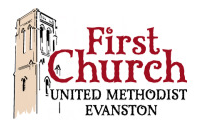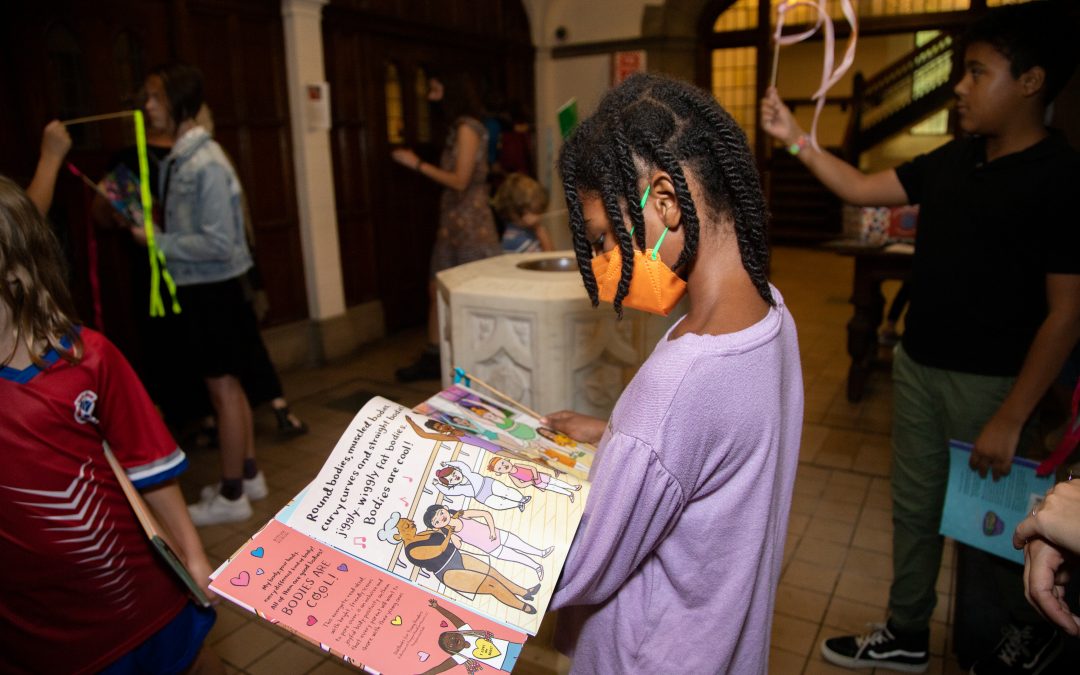The children’s entrance during the opening hymn on Rally Day 2022 was festive and full of energy as usual, with books in place of balloons. The church program year began with a “Peace Library Processional.”
Church members and friends were encouraged to help the children “Carry the Flame” for that Rally Day processional by donating books for a new First Church Peace Library created by Children’s Council. On Oct. 16, the day our third graders received their Bibles from the church, the Peace Library was dedicated in worship and the congregation invited to peruse the collection.
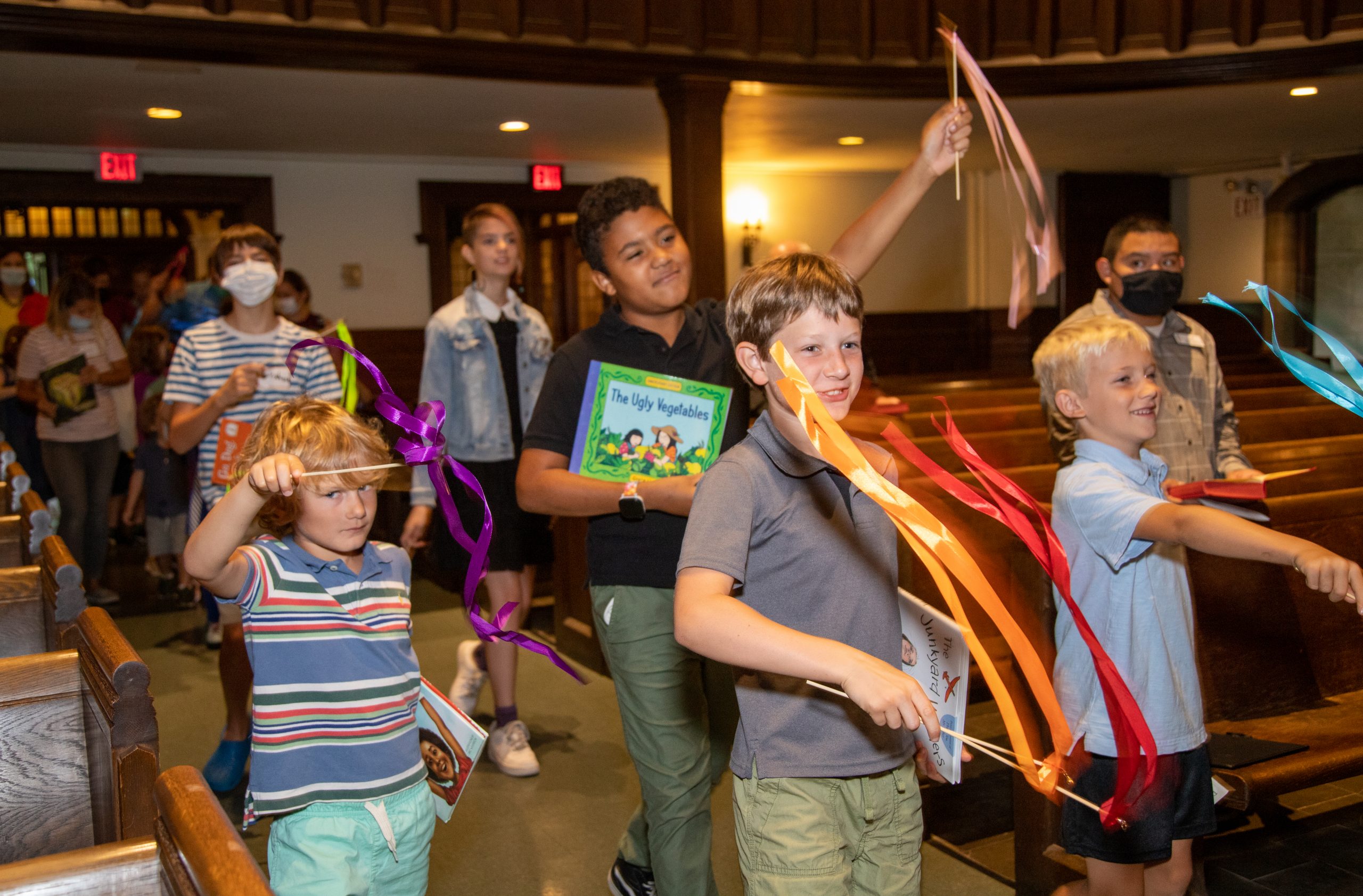
So, what exactly is this Peace Library? It is a collection of nearly 70 donated books (so far) on a variety of topics and geared to very young “readers” through 6th graders. What makes it a peace library – or, as one Children’s Council member thinks of it, a “social justice library”– is the focus on diverse representation of race, ethnicity, gender identity, sexual orientation, family composition, abilities…you name it.
The books are housed on a wheeled red cart that can travel anywhere in the church, and it serves as a kind of home base for all children’s and family gatherings. During Sunday School, Children’s Chapel, and Connect 456, the cart stays on the third floor where the children are as a resource for teachers who find current books that speak in contemporary ways to Bible story lessons. On World Communion Sunday, when children stayed in worship with their families, the cart stayed in the sanctuary. Wherever it is, the Peace Library offers a quiet space and activity for children who need one—an option that Children’s Ministry has adopted for all its programs.
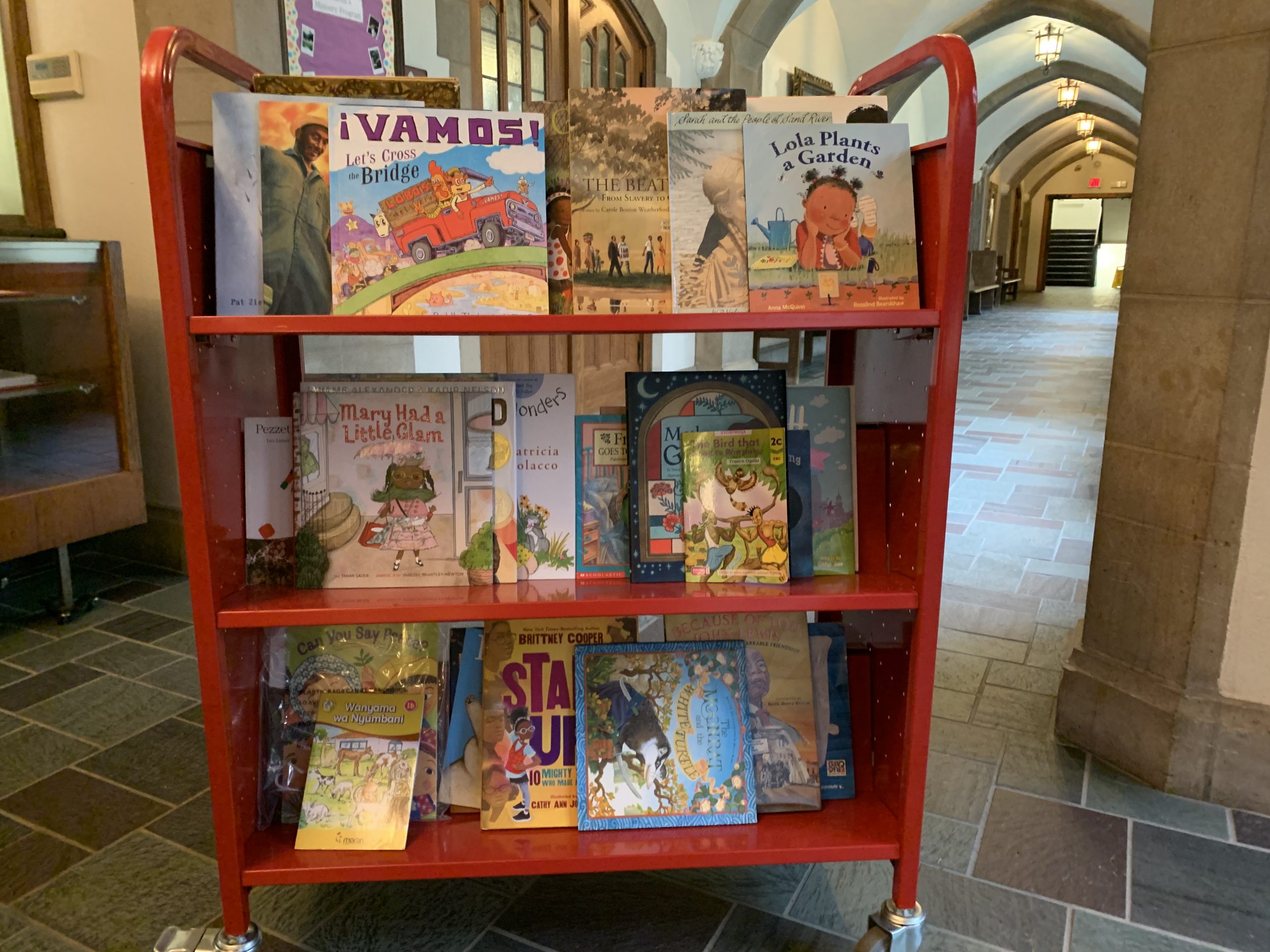
Colin McDonald, Director of Children’s Ministry, points out that with access to these books, children who naturally have limited attention spans can be included in worship with the rest of the congregation and participate in a way that works for them – like using the children’s coloring pages each week. For visiting families with young children in worship, the books can be a Godsend.
How this collection of stories came to be is itself a great story. In response to a request from Church Council to all church leadership committees, in January 2021 the Children’s Council considered the church’s new strategic plan objectives and decided on action steps the Children’s Ministry program would take. The Peace Library idea was met with great enthusiasm and a small working group dug into the project.
First Church member and Garrett-Evangelical Theological Seminary professor of Christian Education Virginia Lee served on Children’s Council at that time. Her experience leading the Garrett-Evanston Freedom School had convinced her how important it is for children to see themselves reflected in books and curriculum. In fact, Lee regularly teaches a seminary class titled “Childrens’ Books for Liberative Education.”
In expressing her hopes for the Peace Library, Lee references sociologist Emily Style’s “windows and mirrors” concept – that the Peace Library collection will offer “mirrors” in which children see themselves and their families represented and “windows” through which they can see and learn about others’ experiences. “It’s hard to get good children’s books,” she says, which is why Children’s Council created a curated list of suggestions, a Peace Library Wish List which includes titles from the American Library Association’s 2022 Notable Children’s Books and Evanston Public Library’s Great List for Kids.
Don Baker, also a member of Children’s Council hopes the books in the Peace Library will spark conversations between kids and parents about how to understand the world and that kids will learn and develop a moral compass that points to social justice. One of the books Don donated is The Story of Ferdinand by Munro Leaf and illustrated by Robert Lawson about a bull who was not interested in violence and preferred smelling flowers.
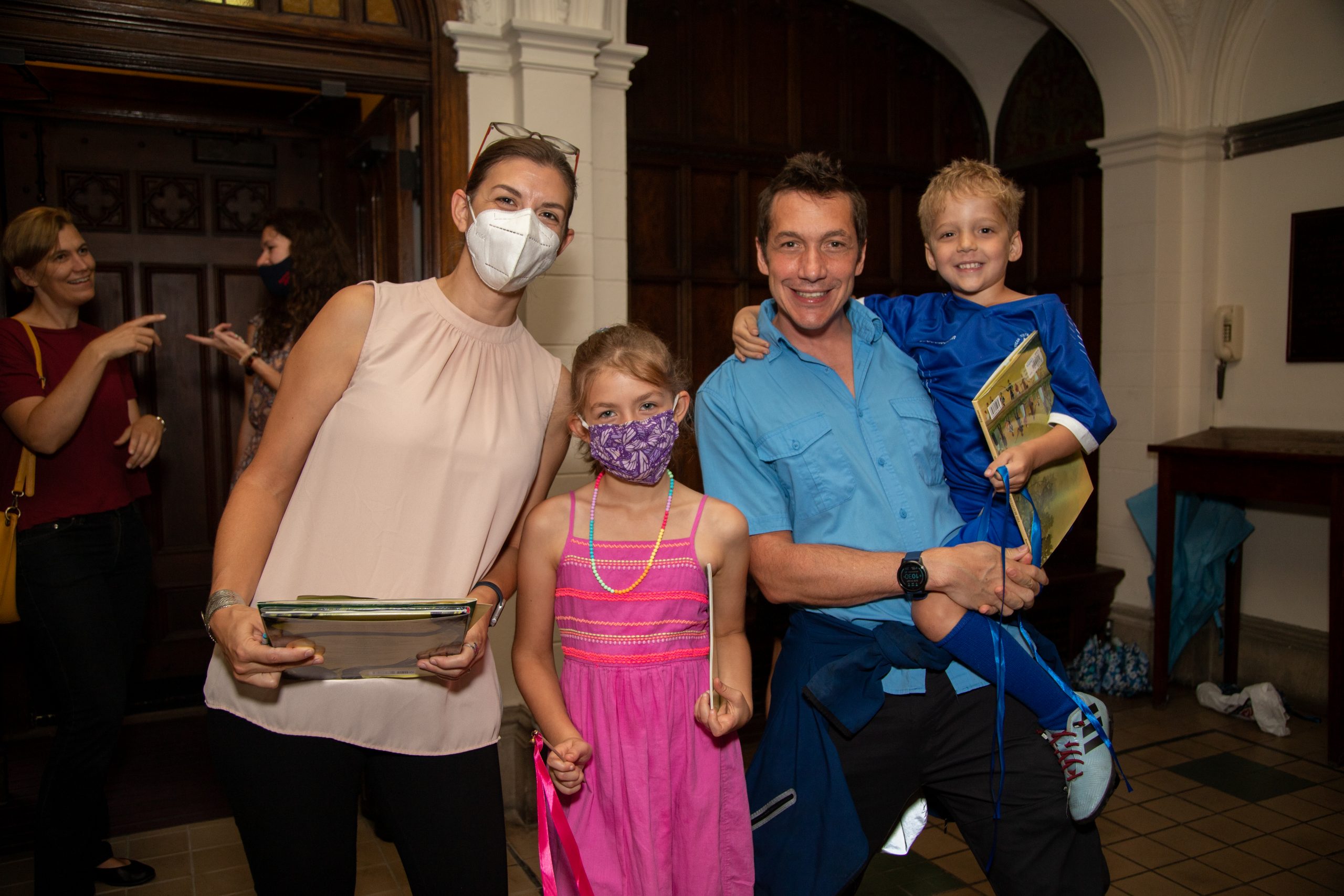
Kate McCarthy, chair of Children’s Council, an educator, and parent of three young sons, appreciates how books and storytime can “bring comfort and connection” and sees books as “connective tissue” with the potential to bring the congregation together:
In my work with the Children’s Council, we are always looking for ways to create inter-generational connections, and I think the Peace Library could help make those connections happen! Whether it’s an adult reading a book to a younger child or adults and children telling each other about their favorite books from the Peace Library, these stories can bring us together.
McCarthy hopes that the Peace Library books “serve as touchstones and shared references for children while also providing them with rich stories that give them a better understanding of their own experiences and the experiences of others.”
McDonald hopes the Peace Library will engage children in reading and foster love for reading, an urgent need in our world full of screens. “We want kids to have a familiarity with books. We want to develop good readers.” McDonald goes on to say that good readers of children’s books can read worship bulletins, hymnals, the Bible. “We can learn together; we can learn to be strong together. We need stories in order to tell our own stories – individual and collective.” Especially after the pandemic, McDonald adds.
The idea of a “Peace Library” is not new for First Church. When longtime members Don and Patty Baker came to the church in 1971, there was another Peace Library. Carl Keith, uncle of Gerry Keith, whom other longtime church members will remember, was a progressive black sheep in a conversative family. He collected and organized pacifist resources in a closet along the north side of Great Hall. Each Sunday morning he opened the closet and invited persons to borrow books and take pamphlets home. “It was his ministry for the coffee hour,” explains Baker. After his death, Carl’s spouse Gertrude ran the Peace Library for a while, then others followed, and eventually it dwindled and ended.
For Don Baker, the new Peace Library is personal. He wants the Peace Library collection to include characters that reflect the experiences of underserved youth of color – a demographic he spent 40+ years working with – and to include characters that “mirror” his mixed–race granddaughters. The Peace Library is also a way to memorialize his older brother Jack, who died in a car accident when Don was 10.
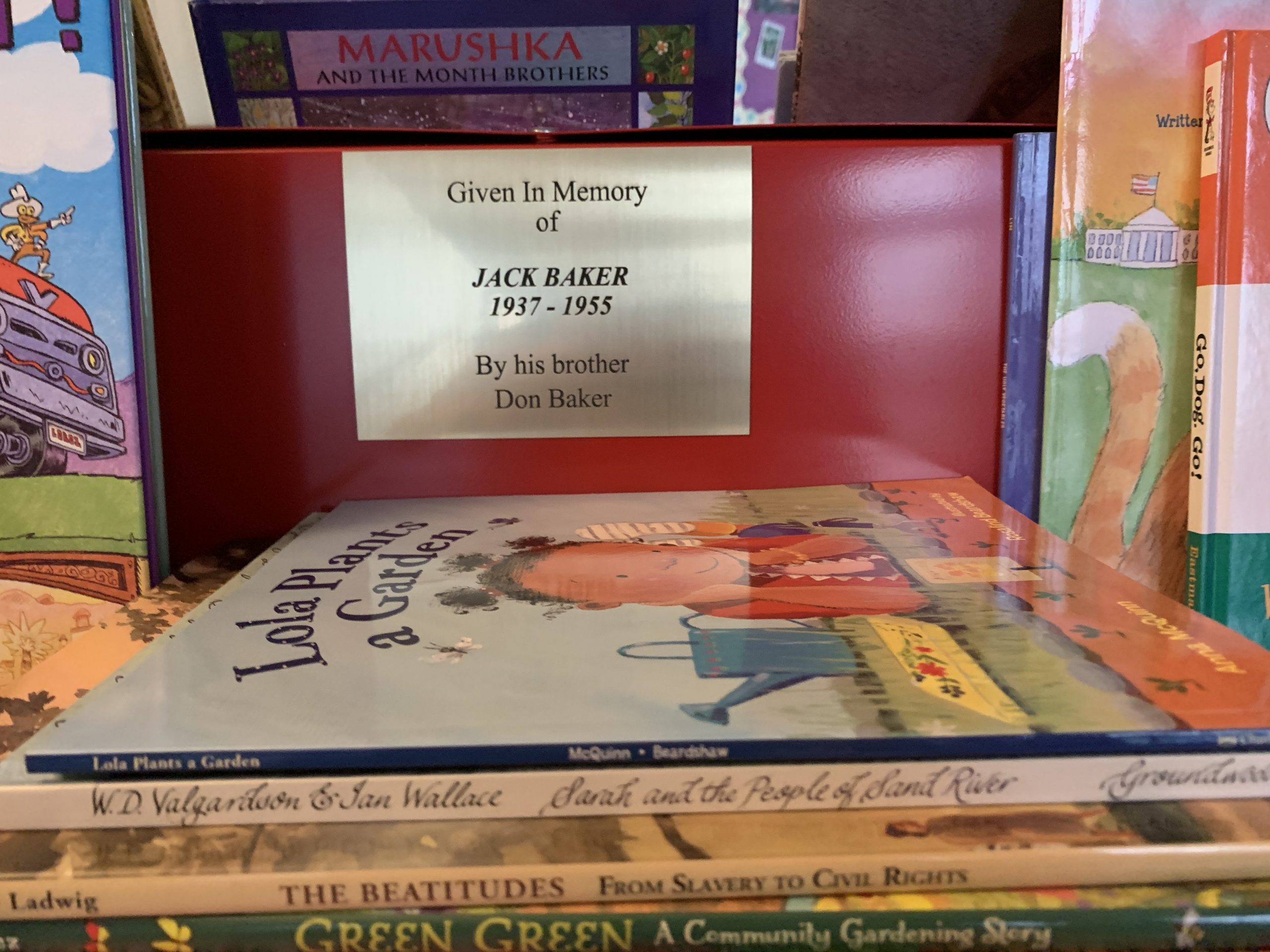
Jack Baker had a learning disability that wasn’t diagnosed or understood in the 1950’s, and it made life and some relationships very difficult. Don has thought of how the Peace Library collection could have helped Jack and will help others. “Jack was a young person who struggled and was misunderstood. We want this library to speak to issues like prejudice and stereotypes.” Encouraged by the Men’s Fellowship Group, Don decided to pay for the cart as a tribute to his brother with an engraved brass plate.
Children’s Ministry leaders are delighted that during Advent the Adult Christian Education program will offer several “One Church, One Book” small groups centered around the children’s picture book The Day You Begin by Jacqueline Woodson and illustrated by Rafael Lopez, one of the 70 books in the Peace Library collection. With a message relevant to all ages, this powerful story can lead to meaningful reflection and conversation in small groups and across the generations of the First Church community.
